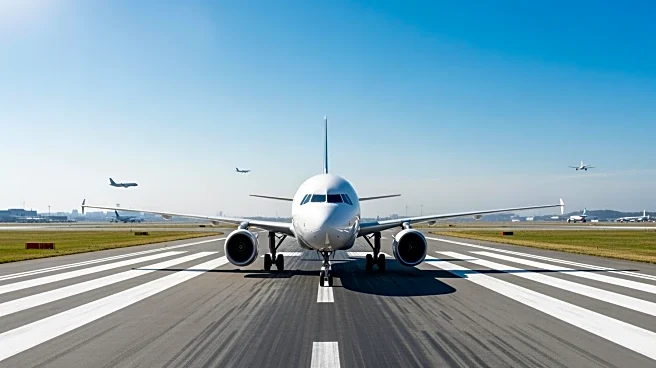What's Happening?
Air Canada has announced a significant expansion at Billy Bishop Toronto City Airport, marking its largest growth at the location in decades. Starting in spring 2026, Air Canada will introduce four new
transborder routes to Boston Logan, Chicago O'Hare, New York LaGuardia, and Washington Dulles, operated by Jazz Aviation using 78-seat De Havilland Canada Dash 8-400s. This expansion directly competes with Porter Airlines, which already serves these cities from Billy Bishop. The move is part of Air Canada's strategy to enhance connectivity for business and leisure travelers in the Greater Toronto Area, supported by cabin upgrades on its fleet.
Why It's Important?
The expansion by Air Canada at Billy Bishop Airport is poised to increase competition in the transborder market, potentially leading to lower fares and improved service offerings. This development aligns with recommendations from Canada's Competition Bureau, which advocates for more competition and less market concentration. While Air Canada aims to capture a larger share of the market, Porter Airlines may face challenges due to its reliance on routes from Billy Bishop, which constitute a significant portion of its operations. The increased competition could benefit consumers through better pricing and service options.
What's Next?
Air Canada's expansion is set to begin with flights to New York in March 2026, followed by Chicago and Washington in June, and Boston in July. The introduction of a U.S. Customs and Border Protection pre-clearance facility at Billy Bishop will further facilitate travel. As Air Canada increases its presence, Porter Airlines may need to adjust its strategy, possibly by enhancing its service offerings or exploring new routes. The competitive dynamics between these carriers will likely evolve as they vie for market share in the transborder travel sector.
Beyond the Headlines
The expansion reflects broader trends in the aviation industry, where carriers are increasingly focusing on urban air travel and connectivity. The strategic move by Air Canada could influence other airlines to reconsider their operations at smaller, more convenient airports. Additionally, the development highlights the importance of infrastructure improvements, such as pre-clearance facilities, in enhancing passenger experience and operational efficiency.










